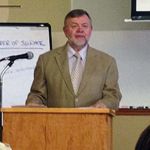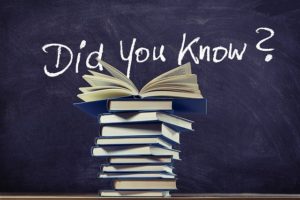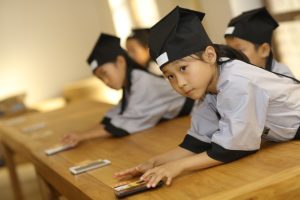© 2021 David Kulieke
© 2021 International Urantia Association (IUA)

(Editor’s Note: David Kulieke sadly passed away recently and we send our sincere condolences to his wife, family and friends. David was a long-time reader, educator and scholar and will be sorely missed in the Urantia Book reader community. This article is an edited version of a presentation he gave at The Urantia Book Seminar on Education, March 2017.)
The fifth epochal revelation has been presented before its time. Even if its believers were more successful in finding new readers, only a small fraction of the world’s population is ready to read The Urantia Book. One might validly ask whether, even at the height of its influence many years from now, a large portion of humanity will actively read the book.
Yet epochal revelations are integral to the slow progress of Urantia towards light and life, especially given all of the missteps this planet has taken. If The Urantia Book is to be of significant influence in bringing light to Urantia, both in its own regard and as a vehicle to revivify aspects of the fourth revelation, its followers must not only bring the book to those who are ready, they must find ways to convey its teachings to the rest of the world.
It takes transformed individuals to transform the world. As The Urantia Book puts it, “The social characteristics of a true religion consist in the fact that it invariably seeks to convert the individual and to transform the world” [UB 160:5.5].
The book also suggests that education is one key to transforming those individuals. We are told, “Culture presupposes quality of mind; culture cannot be enhanced unless mind is elevated” [UB 50:6.4].
As a teacher of writing and literature, my classes and tutoring have provided many opportunities to share Urantia Book concepts with my students. I can assign writing topics, especially those from literature, that create the opportunities for insight and discussion. Writing also is a vehicle through which to elevate critical thinking skills. Great literature abounds with themes that are taught in The Urantia Book from the concept of the role of affliction to growth through sincere decisions.
During the latter portions of my life on Urantia, I have become passionate about the statement in the book that, “Education of public opinion is the only safe and true method of accelerating civilization…” [71.2.7]. This is an eloquent expression of transforming individuals to transform society, and I am eager to know what I can do about it.
My experience as an educator includes three decades in the classroom teaching English, literature, and writing, sixteen summers teaching gifted high school students literary analysis, and individual music lessons since I was in high school. Since I left the classroom, I have tutored thousands of lessons. I teach students from China literature and writing via Zoom, as well as through a class in China last August, and I have been active in education regarding The Urantia Book_._
While I can recount many experiences of sharing ideas from the book within my teaching, I also seek ways to have influence in my small way on a more global level.
¶ Spreading the Teachings Through My Students
At the core of this seminar is learning what we can from each other regarding principles of spreading the teachings of The Urantia Book without necessarily using the book. Being a teacher of literature, writing, and thinking, has provided me a favorable platform.
Teaching writing is a rich resource. One approach concerns using the topics of assigned essays, such as: “Explain how education contributes to the goal of living a fully realized life,” or “What values must one seek to live in order to be human?” Many themes emerging from literature also lend themselves to explorations of fact, meaning, and value.
Writing is also an opportunity to teach thinking, as should be any class. My working, somewhat simplistic definition of intelligence, is “the ability to perceive true relationships among facts, ideas, and systems of ideas.” When writing an essay, one must understand emphasis, distinguishing among the levels of importance of thesis, paragraph topic, and supporting details; coherence, order and flow; relevance, whether items relate to a point; logic, the degree that an argument makes sense; and many other critical thinking skills. These enhanced perceptions help a student along the path towards truth:
There are just three elements in universal reality: fact, idea, and relation. The religious consciousness identifies these realities as science, philosophy, and truth. Philosophy would be inclined to view these activities as reason, wisdom, and faith—physical reality, intellectual reality, and spiritual reality. [UB 196:3.2]
Another area of the English class, literature, is a seemingly endless resource for better understanding the concepts of The Urantia Book_._ This should not surprise us, for great and good literature is written by some of the best observers and philosophers of our civilization, and they are also men and women who are able to illustrate the truths they have seen in narrative or poetic form.
We accept irony through a device called metaphor. And through that we grow and become deeper human beings. ― Haruki Murakami
Perhaps the most profound examples of these truths can be found in tragedy. Aristotle said that, “The saddest of all tragedies [is] the wasted life.” He said that we emerge from watching a tragedy better through understanding the possibilities of life and through our emotional experience of a catharsis.

In Shakespeare’s tragedy Macbeth, King Duncan rewards Macbeth for his loyalty and bravery. But shortly thereafter, the king names his son, not Macbeth, as his successor-to-be. Macbeth’s ambition causes him to contemplate removing the king from his path; together with his equally ambitious wife, they plan to murder Duncan when he visits their castle. Shortly before the foul deed, Macbeth has second thoughts and talks himself out of the murder. In his soliloquy, he names several reasons why he should not do it: Duncan is his relative, his guest, he has bestowed honor and trust upon Macbeth, he is a good king, he is a good man, and, moreover, killing him is simply wrong. But Lady Macbeth enters to show her husband her contempt for his irresolution. He changes his mind again, and, using the phallic symbol of a manhood-strengthening floating dagger to lead him to the king, he begins a spree of carnage. As the play continues, Macbeth becomes figuratively more monstrous and less human, the theme of what makes a man being explored throughout the play.
Another great theme of the play is the difficulty one has of changing course once he has headed down a wayward path. The human tendency to struggle to reverse a trend or separate among a set of beliefs or values is called cognitive dissonance, a theory of the psychologist, Leon Festinger.
Macbeth states, “I am in blood/Stepp’d in so far that, should I wade no more, Returning were as tedious as go o’er” (Act III, Scene IV).
The Urantia Book deals with the same theme when the apostle Peter is unable to refrain from denying Jesus:
Having taken the first step along the path of compromise and least resistance, there was nothing apparent to Peter but to go on with the course of conduct decided upon. It requires a great and noble character, having started out wrong, to turn about and go right. All too often one’s own mind tends to justify continuance in the path of error when once it is entered upon. [UB 184:2.12]
Besides demonstrating cognitive dissonance, we can also examine the problem of deciding to do something against one’s best values, and the need to develop the habit of making and following through with good decisions.
The most powerful theme emerging from Macbeth’s decisions occurs as he unravels during the course of the story and suffers an ongoing disintegration of personality. When he so clearly outlines all the reasons that he should not kill Duncan but then does so anyway, his personality begins to lose its coherence: his actions, will, and soul cannot function together, his spiritual progress is reversed. The Urantia Book states:
A human mind, built up solely out of the consciousness of physical sensations, could never attain spiritual levels; this kind of material mind would be utterly lacking in a sense of moral values and would be without a guiding sense of spiritual dominance which is so essential to achieving harmonious personality unity in time, and which is inseparable from personality survival in eternity. [UB 133:7.10]
In class, we emphasize the concept of integrity_._ Integrity is generally used to mean high values, honesty, or morality. It means this because it is derived from the word “integral,” or oneness. This oneness reflects the personality integration that comes when one’s will drives one’s actions in keeping with one’s best sense of the Father’s will. In class, we discuss how Macbeth has suffered personality disintegration, another way of saying he has figuratively lost his soul. And such an action is in keeping with one losing the status of being human in a spiritual sense.
In contrast with the dark yet illuminating themes in Macbeth, the poem “Ulysses,” by Alfred, Lord Tennyson, shows a progressing soul. This poem discusses Ulysses (Odysseus) as he approaches the end of his life and yearns to feel the adventure and purpose of his heroic youth. But he recognizes that he can do so in a higher reality, that he will seek “To follow knowledge like a sinking star, /Beyond the utmost bound of human thought… my purpose holds…To sail beyond the sunset, and …It may be we shall touch the Happy Isles [the afterlife].” So life prefaces life, and our purposes go on. Or at least this is what we discuss.
Another excellent example of a piece of literature that can be viewed from a Urantia Book perspective is the film It’s a Wonderful Life. The film is a testimony that human life matters. There are also some wonderful Urantia themes early on when George Bailey, a young man who wants to matter, encounters a dilemma when he sees the pharmacist, Mr. Gower, for whom he is delivery boy, mix up aspirin and arsenic. Mr. Gower is clearly drunk, and he becomes abusive towards George, hitting him on his injured ear and insisting that George deliver the mistaken prescription. George runs next door to ask his father for help, but his father is busy; George thus learns he must be responsible for solving his own problem. Finally he gets through to Mr. Gower, and George is able to forgive him and retain his affection because George has learned that Mr. Gower had just received a telegram informing him that his son had died in World War I. The viewing audience can also forgive Mr. Gower, and a student understands that when,” …favored with a widened horizon… how much better you would understand them. If you could only know your fellows, you would eventually fall in love with them” [UB 100:4.5]. Indeed, grasping this theme is a central service provided by literature.
There are many Urantia Book themes that naturally emerge from literature. In many coming-of-age novels, the turning points hinge on “decisions, decisions, and more decisions” and “sincerity, sincerity, and more sincerity.” Fantasy often provides a perspective that relies more on meaning and values than it does on physical reality. Dystopian novels, a staple of young adult literature, show the truth of mota 12, that, “The greatest affliction (in the cosmos) is never to have been afflicted. Mortals only learn wisdom by experiencing tribulation” UB 48:7.14. And many works offer a sense that, whether through love or loyalty, whether a story turns out happily or not, relationships between personalities are paramount.
Where words lose their meaning, people lose their lives. ― Confucius
In any human experience, the most significant meaning results from relationships between personalities. When it is successful, and sometimes when it isn’t, the relationship between student and teacher can be profound. While one cannot force it, over the years I have had many opportunities to share with individual students. I remember a student whose family friend had died in a car accident. After she had come seeking someone to talk to, when the moment was appropriate, we could talk about life and death and what it means. Recently one of my China students was upset after watching the film The Green Mile. She sent me a long email. After I watched the film, I wrote her back with a mixture of comments and quotes from The Urantia Book; then we had a couple of conversations on Zoom. It’s a beginning.
I once had a girl in summer class whose reputation included “destroying” classes she’d attended previous summers. But I saw a brilliant young woman whose intensity and creativity needed to be nurtured. After surreptitiously comparing her to Kate from The Taming of the Shrew as we read the play, her three-week tutorial in turning her energies positive started to bear some fruit. Our relationship continued for a time, and I heard from her mother eight years later after her daughter had graduated from Princeton with honors.
I have given The Urantia Book to many students, and some have attended study groups. None are deep students of the book yet, but we are still trying. The point is that in a student/teacher relationship, some of the necessary steps for presenting the book are natural if one is patient and appropriate.
¶ The Need to Improve Education Globally
Nelson Mandela said, “Education is the most powerful weapon which you can use to change the world.”
Many, many organizations around the world seek to help the cause of education. They recognize how pivotal this effort is if civilization is to advance and the world will become a better place.
In order to effectively fight poverty around the world, the lack of education for children in developing countries, especially for girls, must be addressed. ― Compassion
Increasing educational levels in poor countries will improve economic prosperity and result in other benefits. According to Unicef, “Achieving the [goal of good] education will have transformative effects on other goals… Educating children gives the next generation the tools to fight poverty and prevent disease, including malaria and AIDS. UNICEF advocates high-quality, child-friendly basic education for all, with an emphasis on gender equality and eliminating disparities of all kinds.”
In a world of conflict, repression, famine, disease, and, not incidentally, inequality of education opportunities for girls, improving and making more universal more and better education can make a difference not only on a material level but on a spiritual level as well.

Equitable education for girls is a common concern, the objective of many of the groups dedicated to improving global education. B.R. Ambedkar, an Indian politician and social reformer, said, “I measure the progress of a community by the degree of progress which women have achieved.” Of the under- or noneducated in countries with insufficient education, on average 60% are girls. “Educating girls, in particular, has a ‘multiplier effect.’ Educated girls are more likely to marry later and have fewer children, who in turn will be more likely to survive and to be better nourished and educated. Educated women are more productive at home and better paid in the workplace, and more able to participate in social, economic and political decision-making.” —Unicef
You educate a man; you educate a man.
You educate a woman; you educate a generation.
There are countless benefits that accrue to a culture that gains education, including less violence, more affluence, less disease, longer life spans, more equality, and more tolerance. There are even spiritual gains, progressively leading one from knowledge to understanding to the application of values to spiritual awareness. According to Global Awareness, “Education makes people more likely to participate in political processes constructively and non-violently.” Dr. Martin Luther King wrote, “Intelligence plus character—that is the goal of true education. “
It is the purpose of education to develop and sharpen these innate endowments of the human mind [, these scientific, moral, and spiritual insights, these cosmic responses]; of civilization to express them; of life experience to realize them; of religion to ennoble them; and of personality to unify them. [UB 16:6.11]
¶ My Plans for Helping Outside the Classroom
If we are to help Urantia move closer to being on evolutionary track, education must play a key role. It is the “safe and true method of accelerating civilization.” It is heartening to see the gains that have been made, especially in literacy, during the past two centuries. It is also heart-warming to see the efforts that many individuals and institutions are making. There are numerous large organizations, among them the Global Partnership for Education, Unesco, Compassion, Michelle Obama’s Let Girls Learn, as well as smaller groups like Mind, Body & Spirit, Inc., and Upendo Village.
My hero is Malala Yousafzai, the young Pakistani woman who stood up to the Taliban to support education rights for women and was shot in the head in retaliation. Since recovering and fleeing to England with her family, she has renewed her initiative and become the youngest recipient of the Nobel Peace Prize in history, together with many other awards. She is still a teenager. She said that she doesn’t want be known as the “‘girl who was shot by the Taliban’” but instead as the “‘girl who fought for education.’…I hope to reach every child who could take courage from my words and stand up for his or her rights…One child, one teacher, one book and one pen can change the world” (Yousafzai, Malala. I Am Malala. Little. Brown and Co, 2013). I want to be like Malala when I grow up.
More relevantly, like Malala, I want to help people around the world to become better educated. But to help wobble our misdirected planet nearer to its evolutionary course, to facilitate its readiness for the values of the fifth epochal revelation, to help bring it to preparedness to hear the real gospel of Jesus, to upstep the morality, quality of thought, tolerance, and spirituality of its individuals, education on Urantia must reach more deeply.
Religion implies the existence of undiscovered ideals which far transcend the known standards of ethics and morality embodied in even the highest social usages of the most mature institutions of civilization. Religion reaches out for undiscovered ideals, unexplored realities, superhuman values, divine wisdom, and true spirit attainment. [UB 160:5.5]
I have contributed monetarily to some of those educational organizations, but money doesn’t seem enough; contributing one’s life experience and skills seems essential.
So my plans include continuing to tutor, to teach a summer literature and writing class this year, and to continue my China classes. Marilynn and I also taught two classes in China in August 2016, and we will return there in February 2018. I also intend to continue contributing to the direct Urantia Book education of Urantia Book readers as long as I can.

But my altruism, or my ambition—or both—wants to do more. One avenue is my China students. Teachers know that they contribute to the future. Who knows what students I have taught who will impact Urantia for the better? Maybe I was able to have a minor role in someone who helped significantly. Every student must be considered from that perspective, and every lesson has the possibility of bearing fruit. Many of these students in China are outstanding young people who can be of great influence in their country. These are not under-educated young people; they have access in general to the best education their country can offer, many through international schools, though my classes are exposing them to the American standard of discussing and using higher level critical thinking skills. Many of these students intend to come to the United States for college. I believe that not only China but the Chinese-American relationship will be of huge significance during the next century; China is spiraling through alternating times of greater freedom and repression. As the country inches towards a more democratic state, I can see my high-minded and open-minded students contributing. (I have a couple picked out for head of state.)
I am in the process of contacting several of those organizations I’ve mentioned to see how I could help. I’m intrigued by Let Girls Learn. Another thought I’ve had is to establish my own little organization that would involve some of my students who are interested in the concept of helping transform the world through educationally transforming individuals. Given the wave of neo-nationalism sweeping the western world, Europe and the United States are certainly relevant to the goal of improving “the education of public policy.”
Readers of The Urantia Book are fortunate: we know that it makes sense to keep trying to help, right until the point where we end our lives.
¶ Conclusions
The most important thing is that we all need to try. There are many ways we can each in our small ways contribute to the transformation of Urantia; every bit helps, and even Michael didn’t get civilization to move as far as he wanted during his human life on Urantia. We can each play a part. Civilization progresses through each individual. Let me illustrate with one more literary reference. In Lord of the Flies, a group of boys are stranded on a tropical island during a nuclear war. They have enough to eat and drink, and they even create a workable system of government and cooperation. To survive, all they need do is each of them conduct themselves appropriately within the framework of their system. But even with the help of a “Christ” (figure), whom they murder, their savagery will out. Within a fairly rough construct, one can draw the theme, “It takes transformed individuals to transform society.”
Whatever the circumstances we find ourselves, professionally or otherwise, we can find ways to positively bring the teachings of the book and the fruits of the spirit to those we encounter: life is relationships.
There are three levels of education outlined here:
- Improving the study of The Urantia Book for readers.
- Using formal situations, such as in classrooms, to convey its teachings without the book.
- Spontaneously living and teaching the fruits of the spirit “as we pass by.”
The Urantia Book and even its teachings are means to ends. But if we are to validly bring the teachings of The Urantia Book to others, we must keep trying to understand those teachings. Studying the messages in the book should never grow old. Even if we accept that our work may include many people who will not read The Urantia Book, it is clear that we all must continue to read it, and read it well if we are to present its teachings.